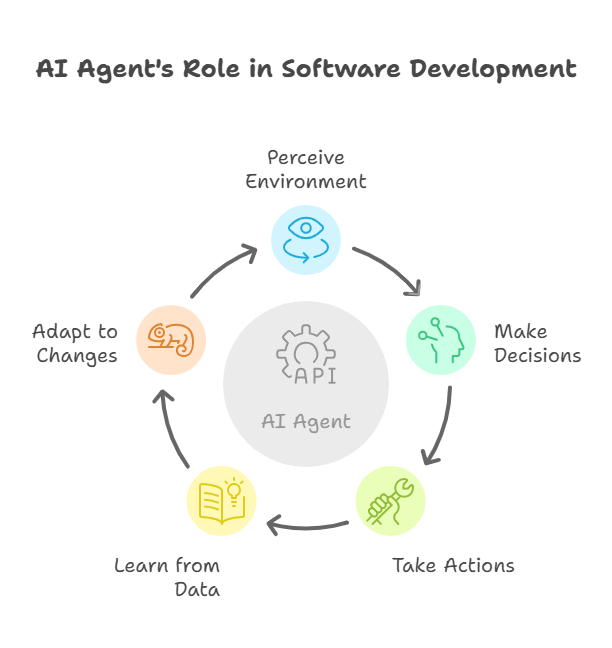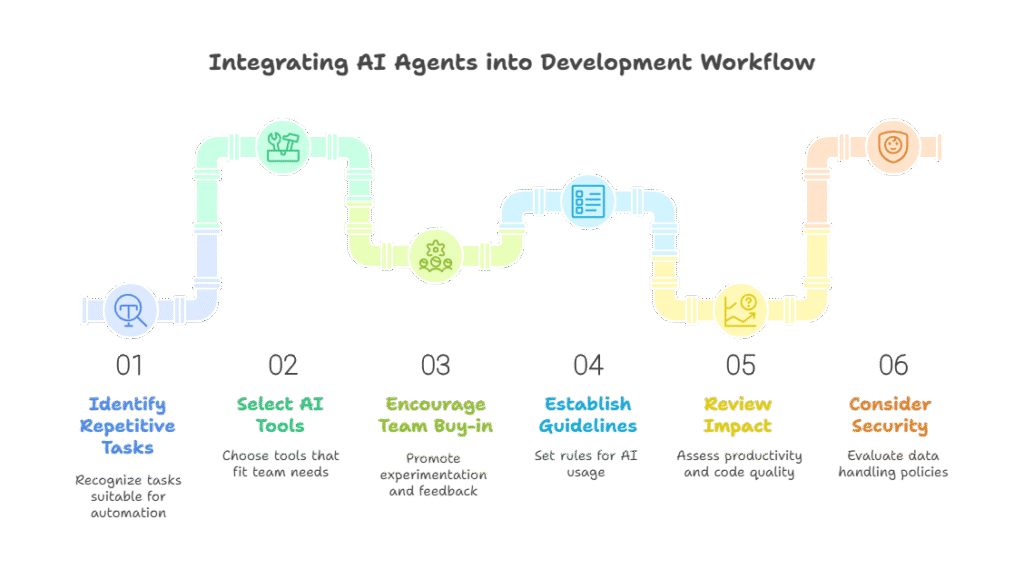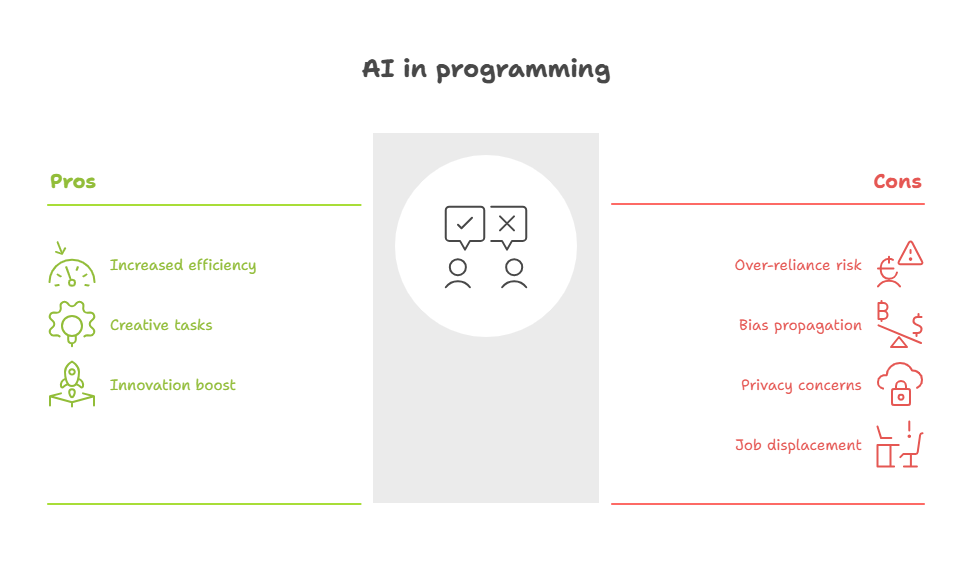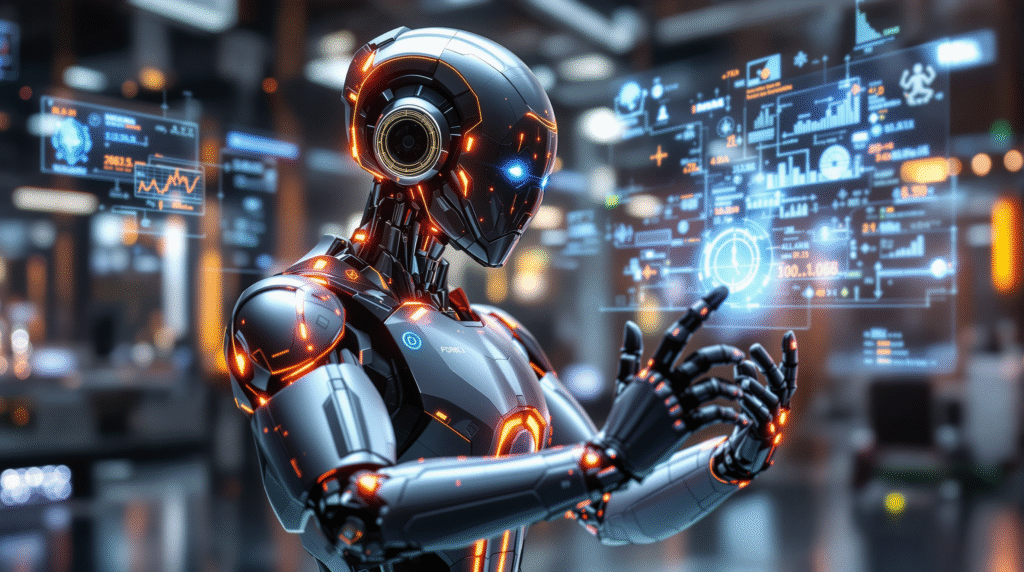Introduction: The Evolving Landscape of Software Development
The world of software development is in a constant state of flux. New languages, frameworks, and methodologies emerge regularly, each promising to improve efficiency, reduce costs, and enhance the quality of software. In recent years, one of the most transformative trends has been the rise of artificial intelligence (AI) and its integration into the development process. AI is no longer a futuristic concept but a practical tool that is reshaping how software is created, tested, and maintained. As the complexity of software projects continues to grow, developers are increasingly turning to AI-powered solutions to help them stay competitive and deliver high-quality products. This article explores the next generation of programming, where developers work side by side with AI agents to achieve unprecedented levels of productivity and innovation.
Understanding AI Agents: What They Are and How They Work
AI agents are autonomous entities designed to perceive their environment, make decisions, and take actions to achieve specific goals. In the context of software development, these agents are equipped with the ability to understand code, identify patterns, and automate repetitive tasks. Unlike traditional tools that require explicit instructions, AI agents can learn from data and adapt to changing circumstances. They leverage machine learning, natural language processing, and other AI techniques to assist with a wide range of activities, including code generation, debugging, testing, and project management. By understanding complex requirements and providing intelligent solutions, AI agents are becoming a valuable addition to any development team. They can analyze code, suggest improvements, and even generate entire functions or modules, freeing up developers to focus on more creative and strategic aspects of their work.

The Benefits of Collaborating with AI Agents
Collaborating with AI agents offers numerous advantages that can significantly enhance the development process. First and foremost, AI agents dramatically increase productivity by automating time-consuming tasks such as code generation, refactoring, and testing. This allows developers to focus on higher-level problem-solving and creative aspects of software design.
AI agents also improve code quality by providing real-time feedback, detecting bugs early in the development cycle, and suggesting optimizations. They can analyze vast codebases instantly, identifying patterns and potential issues that might take human developers hours to discover. Additionally, AI agents serve as excellent learning companions, helping developers explore new technologies, understand complex algorithms, and adopt best practices.
Another significant benefit is consistency. AI agents can enforce coding standards across teams, ensuring that all code follows established conventions and guidelines. This is particularly valuable in large organizations where multiple developers work on the same project.
Here’s a simple Python example demonstrating how an AI agent might assist with code optimization:
python
class CodeOptimizationAgent:
def __init__(self):
self.optimization_suggestions = []
def analyze_loop_efficiency(self, code_snippet):
"""Analyze loops for potential optimizations."""
suggestions = []
# Example: Detect inefficient list operations
if "for i in range(len(" in code_snippet and ".append(" in code_snippet:
suggestions.append({
"issue": "Inefficient list iteration",
"suggestion": "Consider using list comprehension or enumerate()",
"example": "# Instead of: for i in range(len(items)): new_list.append(items[i])\n# Use: new_list = [item for item in items]"
})
return suggestions
def suggest_improvements(self, original_code):
"""Provide improvement suggestions for given code."""
# Simulate AI analysis
improved_code = original_code.replace(
"for i in range(len(items)):\n new_list.append(items[i])",
"new_list = [item for item in items]"
)
return {
"original": original_code,
"improved": improved_code,
"performance_gain": "~30% faster execution"
}Use Cases: Real-World Examples of AI Agents in Action
AI agents are already making a significant impact across various aspects of software development. Here are some compelling real-world use cases that demonstrate their practical value:
Code Generation and Completion: AI agents like GitHub Copilot can generate entire functions based on comments or partial code. They understand context and can suggest relevant implementations, significantly speeding up the coding process.
Automated Testing: AI agents can generate comprehensive test suites, identify edge cases, and even create mock data for testing scenarios. This ensures better test coverage and reduces the manual effort required for quality assurance.
Bug Detection and Debugging: Advanced AI agents can analyze code patterns to predict potential bugs before they occur, suggest fixes for existing issues, and even automatically resolve simple problems.
Here’s a practical Python example showing how an AI agent might assist with automated test generation:
python
import ast
import inspect
from typing import List, Dict
class TestGenerationAgent:
def __init__(self):
self.test_templates = {
'basic_function': '''
def test_{function_name}():
# Test basic functionality
result = {function_name}({sample_input})
assert result == {expected_output}
def test_{function_name}_edge_cases():
# Test edge cases
assert {function_name}(None) is not None
assert {function_name}([]) == []
''',
'class_method': '''
def test_{class_name}_{method_name}():
instance = {class_name}()
result = instance.{method_name}({sample_input})
assert result is not None
'''
}
def analyze_function(self, func):
"""Analyze a function and generate appropriate tests."""
func_name = func.__name__
signature = inspect.signature(func)
# Generate sample inputs based on parameter types
sample_inputs = self._generate_sample_inputs(signature)
return {
'function_name': func_name,
'parameters': list(signature.parameters.keys()),
'sample_inputs': sample_inputs,
'suggested_tests': self._create_test_cases(func_name, sample_inputs)
}
def _generate_sample_inputs(self, signature):
"""Generate sample inputs based on function signature."""
inputs = {}
for param_name, param in signature.parameters.items():
if param.annotation == int:
inputs[param_name] = [0, 1, -1, 100]
elif param.annotation == str:
inputs[param_name] = ["", "test", "hello world"]
elif param.annotation == list:
inputs[param_name] = [[], [1, 2, 3], ["a", "b"]]
else:
inputs[param_name] = [None, "default_value"]
return inputs
def _create_test_cases(self, func_name, sample_inputs):
"""Create test cases based on function analysis."""
test_cases = []
# Generate basic functionality tests
test_cases.append(f"""
def test_{func_name}_basic():
# Basic functionality test
result = {func_name}({list(sample_inputs.values())[0][0] if sample_inputs else ''})
assert result is not None
""")
# Generate edge case tests
test_cases.append(f"""
def test_{func_name}_edge_cases():
# Edge case testing
try:
result = {func_name}(None)
assert True # Function handles None gracefully
except (TypeError, ValueError):
assert True # Expected exception for invalid input
""")
return test_cases
# Example usage
def calculate_average(numbers: List[int]) -> float:
"""Calculate the average of a list of numbers."""
if not numbers:
return 0.0
return sum(numbers) / len(numbers)
# AI agent analyzes and generates tests
agent = TestGenerationAgent()
analysis = agent.analyze_function(calculate_average)
print("=== AI-Generated Test Analysis ===")
print(f"Function: {analysis['function_name']}")
print(f"Parameters: {analysis['parameters']}")
print("\nGenerated Test Cases:")
for test in analysis['suggested_tests']:
print(test)Code Review Automation: AI agents can perform comprehensive code reviews, checking for style violations, security vulnerabilities, and performance issues. They provide consistent feedback and can even suggest specific improvements.
Documentation Generation: AI agents can automatically generate documentation from code comments, function signatures, and usage patterns, ensuring that documentation stays up-to-date with code changes.
These examples demonstrate how AI agents are not replacing developers but rather augmenting their capabilities, allowing them to work more efficiently and focus on higher-value tasks that require human creativity and strategic thinking.
Integrating AI Agents into Your Development Workflow
Integrating AI agents into your development workflow can bring immediate and long-term benefits, but it requires thoughtful planning and adaptation. The first step is to identify areas in your workflow that are repetitive, time-consuming, or prone to human error—these are prime candidates for AI-driven automation. Examples include code formatting, static analysis, test generation, and even project management tasks like ticket triage.
Once you’ve identified these areas, select AI tools or platforms that best fit your team’s needs. Many modern code editors and IDEs now offer built-in AI-powered features, such as code completion, refactoring suggestions, and real-time error detection. For more advanced use cases, you can integrate standalone AI agents or APIs that provide code review, bug detection, or documentation generation.
Successful integration also depends on team buy-in and training. Developers should be encouraged to experiment with AI agents, provide feedback, and share best practices. It’s important to establish clear guidelines for when and how to use AI-generated suggestions, ensuring that human oversight remains a key part of the process. Regularly reviewing the impact of AI agents on productivity and code quality will help you fine-tune their role in your workflow.
Finally, consider security and privacy implications when introducing AI agents, especially those that process proprietary code or sensitive data. Choose reputable tools, review their data handling policies, and, if necessary, use on-premises solutions to maintain control over your codebase.

Best Practices for Effective Collaboration
To get the most out of working side by side with AI agents, it’s essential to follow a set of best practices that foster effective collaboration and maximize the benefits of this partnership.
First, always treat AI-generated code and suggestions as starting points, not final solutions. Human review is crucial to catch subtle bugs, ensure code readability, and maintain alignment with project goals. Encourage developers to critically evaluate AI output and refine it as needed.
Second, maintain clear and consistent coding standards. AI agents can help enforce these standards, but they should be well-documented and regularly updated to reflect evolving best practices. This ensures that both human and AI contributions remain coherent and maintainable.
Third, use AI agents as learning tools. Encourage team members to explore how AI arrives at its suggestions, which can reveal new techniques or highlight areas for skill development. This approach turns AI agents into mentors as well as assistants.
Fourth, monitor the performance and impact of AI agents. Collect feedback from developers, track metrics like code quality and review times, and adjust your workflow as needed. This iterative approach ensures that AI agents continue to add value as your team and projects evolve.
Lastly, foster a culture of openness and experimentation. The field of AI in software development is rapidly advancing, and new tools and techniques are emerging all the time. Encourage your team to stay curious, share discoveries, and adapt to new possibilities as they arise.
By following these best practices, you can create a productive, innovative environment where developers and AI agents work together seamlessly, driving the next generation of software development.
Addressing the Challenges and Concerns
While the integration of AI agents into the programming workflow brings many benefits, it also introduces new challenges and concerns that teams must address. One of the primary issues is the risk of over-reliance on AI-generated code. Developers may be tempted to accept suggestions without fully understanding the underlying logic, which can lead to subtle bugs or security vulnerabilities slipping into the codebase. To mitigate this, it’s essential to maintain a culture of critical review and continuous learning, where every AI-generated contribution is carefully evaluated.
Another concern is the potential for AI agents to reinforce existing biases or propagate bad practices if they are trained on flawed or outdated datasets. Teams should regularly review the output of AI agents, provide feedback to tool vendors, and stay informed about updates and improvements to the underlying models. Transparency in how AI agents make decisions is also important, especially when they are used for tasks like code review or bug detection.
Data privacy and security are additional challenges, particularly when using cloud-based AI tools that process proprietary or sensitive code. Organizations should carefully vet AI solutions, understand their data handling policies, and consider on-premises or self-hosted options when necessary.
Finally, there is the human factor: some developers may feel threatened by the increasing role of AI in their work. It’s important to foster an environment where AI is seen as a partner rather than a replacement, emphasizing how these tools can free up time for more creative and impactful tasks.

The Future of Programming: A Symbiotic Relationship
Looking ahead, the relationship between developers and AI agents is poised to become even more symbiotic. As AI technology advances, agents will become more context-aware, capable of understanding not just code syntax but also project goals, user requirements, and even business logic. This will enable them to provide even more relevant and valuable assistance throughout the software development lifecycle.
In the future, we can expect AI agents to take on more complex roles, such as autonomously managing parts of the development process, orchestrating deployments, or even collaborating with other AI agents to solve multifaceted problems. Developers, in turn, will shift their focus toward higher-level design, architecture, and innovation, leveraging AI as a powerful tool to amplify their capabilities.
Education and professional development will also evolve, with new emphasis on skills like prompt engineering, AI ethics, and human-AI collaboration. Teams that embrace this new paradigm will be better positioned to innovate rapidly and deliver high-quality software in an increasingly competitive landscape.
Ultimately, the future of programming is not about humans versus machines, but about humans and AI agents working together—each complementing the other’s strengths. This partnership promises to unlock new levels of productivity, creativity, and satisfaction in the world of software development.
Conclusion: Embracing the Next Generation of Programming
The integration of AI agents into the software development process marks a significant shift towards a new era of programming. By working side by side with these intelligent tools, developers can unlock unprecedented levels of productivity, innovation, and code quality. While challenges and concerns exist, they can be effectively addressed through careful planning, continuous learning, and a commitment to ethical AI practices.
As AI technology continues to evolve, the relationship between developers and AI agents will become even more symbiotic, with each complementing the other’s strengths. Developers will increasingly focus on higher-level design, architecture, and innovation, while AI agents handle routine tasks, enforce coding standards, and provide real-time feedback.
To thrive in this next generation of programming, developers must embrace a mindset of collaboration, experimentation, and continuous improvement. By staying curious, sharing best practices, and adapting to new possibilities, they can harness the full potential of AI agents and drive the future of software development.
In conclusion, the next generation of programming is not just about writing code; it’s about working side by side with AI agents to create innovative, high-quality software that meets the evolving needs of users and businesses. By embracing this new paradigm, developers can unlock new levels of productivity, creativity, and satisfaction in their work.
Game Theory in Intelligent Agents
From Pull Request to Deployment: AI Agents in the Review Process
Quantum Programming with AI Agents: New Horizons in Computing


